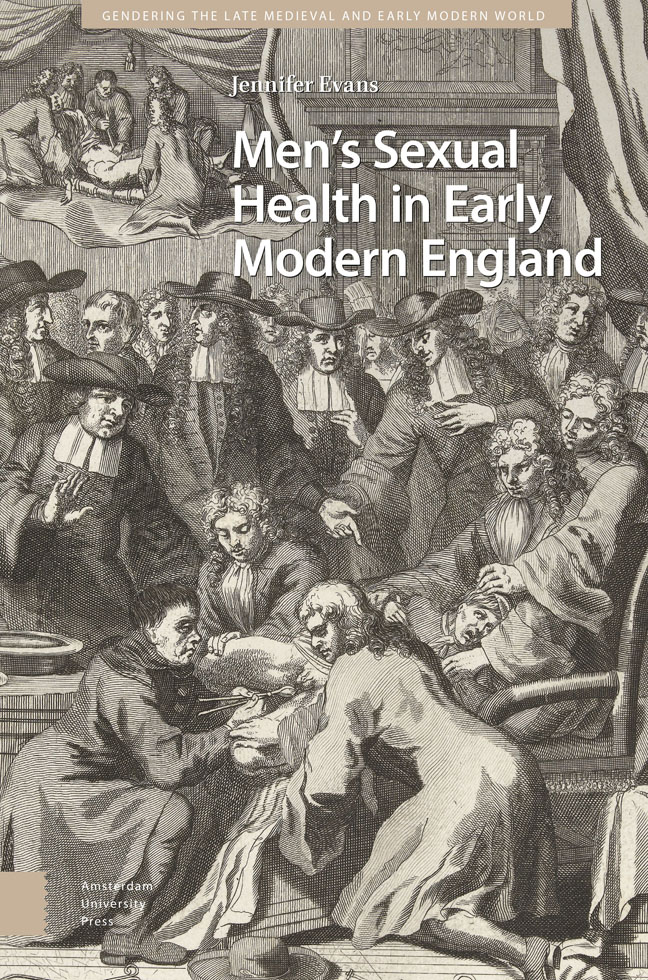2 - A Moment of Crisis: Flagging Phalluses and Failing Fertility
Published online by Cambridge University Press: 20 February 2024
Summary
Abstract: Once in adulthood, genitourinary conditions were presented as a moment of crisis that exposed the body to impotence and infertility. Surgical texts in particular foregrounded these concerns as damage to the testicles, which was understood to be a key danger in surgical treatments for hernia and bladder stones. Surgeons were therefore careful to point out that their own skill was attested by their ability to retain men's fertility while completing such treatments. This chapter also emphasizes that although impotence and infertility could be concealed, keeping such a secret could be difficult. Several conditions, notably venereal disease, caused the beard to fall out. Thin and patchy facial hair thus signalled to the world the crisis that male patients were experiencing.
Keywords: impotence; infertility; surgical skill; facial hair; sexual vigour
Once they reached adulthood, men's bodies were compared against a model that suggested that the middle-aged man was strong, rational, and virile. His body was charged with the propagation of mankind, the government of a household, and earning a living to support his dependents. Scholars have suggested that men rarely suffered from conditions that afflicted the sexed body, and that when they did so that these conditions did not affect men's sexual self-image. Manuscript records likewise show little anxiety about damage to men's sexual and reproductive function. Yet medical texts presented a different image. They suggested that genitourinary ill health threatened to undermine these manly abilities. Furthermore, they implied that when genitourinary illnesses appeared, they constituted a moment of crisis where the body might be unmanned and undone by distressing symptoms and disastrous long-term effects. The concerns focused on three key issues: impotence, fertility, and the loss of facial hair. Medical and surgical texts were effusive in their descriptions of the male genitalia, emphasizing that the penis and testicles were requisite to be considered a man. Yet hernias, bladder stones, swellings, and injuries all risked damage to these vital organs. Alison Montgomery has suggested that eighteenth-century medical and surgical writers generally displayed little concern for how these disorders could disrupt a man's body or potentially affect manhood; there was little evidence of anxiety about genital completeness, or penile problems. Seventeenth-century texts demonstrate some ambivalence about men's bodies. They praised the complete body but emphasized that injuries and illnesses that limited functionality were not total impediments to a full and active sexual life.
- Type
- Chapter
- Information
- Men's Sexual Health in Early Modern England , pp. 59 - 88Publisher: Amsterdam University PressPrint publication year: 2023



